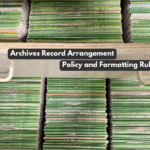Librarianship is an emerging profession, with librarians working in various types of libraries. This profession involves acquiring and organizing collections of books and related materials, as well as providing services to readers and others with the resources. Librarians are primarily responsible for managing and organizing library information and resources, including acquiring, cataloging, and maintaining collections of books, digital media, and other materials. They also offer research assistance, help users navigate databases, and promote information literacy. Furthermore, librarians design programs and services to engage the community and encourage learning. With the increasing impact of digital resources and evolving technologies, librarianship now includes the management of digital resources and the adaptation to new technologies.

There are seven important types of librarians:
1. Embedded Librarian: Embedded librarians are integrated information experts who offer direct research assistance to groups of faculty and students over the course of an entire semester.
2. Liaison Librarian: A liaison librarian is a library faculty member designated as the formal contact person between the library and a particular academic unit (school, department, or center). Their primary responsibility is to meet the unit’s information needs through instruction, collection development, research assistance to faculty and students, and other unit-related library support.
3. Medical Librarian: Medical librarians, also known as health information professionals, find, analyze, provide access to, and present critical information that improves patient care and supports health and medical education, research, and publication.
4. Reference Librarian: Reference librarians recommend, interpret, evaluate, and use information resources to help patrons with specific information needs, which can occur in person at the library or increasingly through phone, chat, and email.
5. Research Librarian: A research librarian organizes and maintains research support services and information for organizations, universities, or research-based institutions and is ready to support researchers and research.
6. Data Librarian: Data librarians are professional library staff engaged in managing research data, using research data as a resource, and supporting researchers dealing with data. They also manage infographic and data visualization activities.
7. Technical Librarian: Librarians providing technical services are experts in gathering, arranging, cataloging, categorizing, and overseeing a wide range of library resources.
Duty and Responsibility
In this age of information explosion, libraries are a reliable social institution for collecting, storing, and distributing knowledge. The librarian is the director of this institution. He has to fulfill his duties like a well-skilled organizer in the construction of civilization. He must always play a leading and active role in developing the nation’s talent and intellectual maturity. Involvement of officers or employees working in other social institutions. In the midst of achieving excellence in this world, the entire nation has to fulfill multi-faceted responsibilities at the court of the world.
To be established as an ideal librarian, he must fulfill three important responsibilities.
1. Professional Responsibilities:
A librarian in professional life is primarily engaged in the proper responsibility of imparting knowledge. Building a repository of knowledge is essential. Proper storage is necessary to ensure proper distribution. Therefore, the professional responsibility of the librarian is to collect, preserve, and distribute knowledge. For this, he has to do the following in the library:
A) Building and Enhancing Library Collections: Readers’ demand for knowledge is increasing. As a result of the development of science and technology, new inventions are constantly emerging. With the propagation of new doctrines, the old information and doctrines are becoming obsolete, thus changing the needs of the reading society. The librarian’s job is to provide textbooks according to the needs and tastes of the readers. He/she will develop the library collection by balancing the needs of the readers, the quality of publications, and the financial viability of the library.
B ) Preservation of reading materials: It is the responsibility of the librarian to preserve the collected materials along with the growth of the library. Just like a diver, he will gather wisdom from the sea of knowledge and create a storehouse of knowledge, he will also preserve these things. Because in addition to collection, if a proper preservation system is in place, a rich collection is developed. Moreover, on the one hand, just as the wastage of money is prevented, the future generation will have the opportunity to learn about the history and creations of the present generation.
C) Formatting: Formatting of textbooks is essential to ensure library service and utilization of collected textbooks. So that the reader does not waste time and has to arrange any collection as usual. The prosperity of the library largely depends on the fulfillment of this responsibility of the librarian. Moreover, classification is the basis of bibliography.
D) Keeping the library alive: Just as the gardener keeps the garden attractive and fresh by removing weeds and dead branches through regular maintenance, so the librarian should keep the library alive by removing unnecessary or non-current books from the shelves. In keeping with the pace of human civilization, the library can be kept up-to-date only by increasing the collection of the library as well as by periodically weeding out the books that are unnecessary, out of date, or unreadable.
2) Administrative Responsibilities:
Needless to say, librarianship as a profession is well established today as an important profession with the status of evolution of time and civilization. Although the librarian is the centerpiece of the reading society, he is subject to the administrative structure. As a librarian, he also has to perform more or less administrative duties. The responsibilities of librarians he performs in the library environment are as follows:
A) Budget formulation: The budget of the money required for providing proper services to the readers, increasing and preserving the reader’s collection, supply of necessary tools for the library, etc. is to be prepared and submitted to the authorities for approval every year. In larger libraries, this budget is prepared by colleagues under the supervision of the librarian, and in smaller libraries, by the librarian himself.
B) Accounts Payable: The librarian is fully responsible for all the functions of the library. That is why he has to be careful in every work. Any financial expenditure account, public or private, must be submitted to the appropriate authorities. In particular, the audit team audits the library accounts every year. The library has to supervise the accounting of the library for auditing and accountability to the authorities. In smaller libraries, the librarian himself prepares the accounts.
C) Preparation of reports: One of the good principles of library administration is the preparation of weekly reports. The librarian has to submit an annual report to the highest authority. All these reports are prepared by the librarian with the help of subordinate staff.
D) Control and Co-ordination: The librarian is also responsible for controlling the subordinates, supervising and coordinating their work, carrying out their welfare activities, etc.
3) Service or Human Responsibilities:
The library is a service institution. Just as hospitals are busy with patients, educational institutions are busy with students, and libraries are busy with their reading community. At work, a librarian has to perform some service or humanitarian duties due to professional characteristics, these are as follows:
A) Prompt service: The library should be ready to provide any type of prompt service as per the needs of the readers. A reader may come to the library and fall ill, the librarian then becomes responsible for providing primary service and treatment to the sick reader.
B) Collaborative Responsibilities: The modern librarian’s service is not confined to the limited scope of his field of work; he has to go far beyond the user’s needs. Many library users or readers do not know where to find information, but that information is in great need. In such cases, the librarian will at least give his reader a source search. The librarian has the responsibility and imperative to enhance the service.
C) Creating interest in the minds of the readers: The librarian must strive to create interest in the minds of the readers and develop reading habits. He can fulfill this responsibility by organizing various exhibitions, distributing brochures, summarizing various publications, etc. to encourage the readers.
Library is a great social institution dedicated to human welfare. The success of this institution depends in large part on the librarian’s awareness and responsibility. Due to the growing demand for knowledge, his responsibilities have gradually expanded. As a result, librarians have emerged as reliable conduits of knowledge, which undoubtedly bodes well for the nation.



